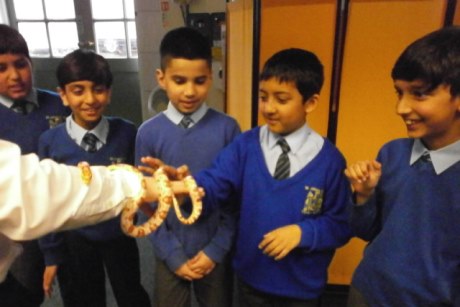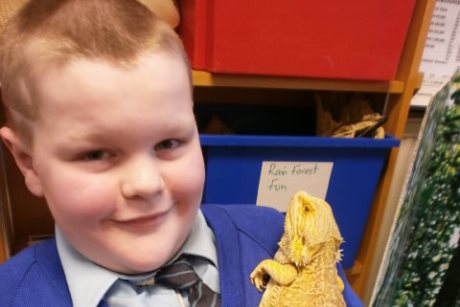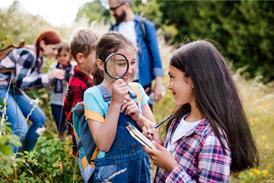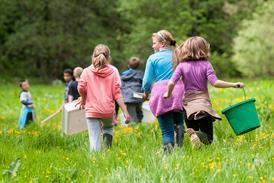The Birmingham Botanical Gardens, set in 15 acres of landscaped greenery, offers more than 20 teaching sessions suited for students from Early Years through to Key Stage 4.

The sessions, which take place in the Gardens’ dedicated classrooms, glasshouses and outdoors, cover subjects including Science, Geography, English, Maths and Art.
From pond dipping in its purpose-built water area, to donning a safari hat to solve cryptic clues in its glasshouses as a rainforest detective and learning about how plants grow and are pollinated in an interactive dress-up session, Birmingham Botanical Gardens’ teaching sessions have all been designed to follow the new National Curriculum.
Below, School Travel Organiser picks out some of the teaching sessions on offer…
EYFS, Key Stage 1 & 2: Butterfly Lifecycle with Live Butterflies
New for 2016 and suitable for pupils in Early Years through to Key Stage 2 is the Butterfly Lifecycle session, which takes place in one of the Gardens’ classroom as well as the butterfly house.
The session starts with pupils dressing up as caterpillars and butterflies to learn about the butterfly lifecycle, before moving into the butterfly house to see the butterflies flying, drinking and possibly even hatching.
Students will finish by making a butterfly collage to take home with them.
This session is available for schools all year round, however it will only include live butterflies from late May until late September.
Curriculum links
EYFS: Communication and Language, Physical Development, Personal Social and Emotional Development, Maths, Understanding the World, Expressive Arts & Design, Playing and Exploring, Active Learning, Creating and Thinking Critically.
Key Stage 1 & 2: Science, English, Maths (Key Stage 1 only), Art & Design, Physical Education (Key Stage 2 only)
Key Stage 1 & 2: Rainforest Fun with Live Animals
Described as the most popular session for pupils, Rainforest Fun with Live Animals gets students learning about the rainforest environment through observing tropical seeds, food products and tribal artefacts.
As part of the session there is also a live animal handling opportunity. Pupils will have the chance to get up close to a range of animals, which may include a sand boa, a giant African land snail, a chameleon, a bearded dragon and Indian stick insects.
Although not all of the animals used in the animal handling session are tropical, they will be used to discuss general adaptations and to learn about what kind of animals live in a rainforest habitat.
Curriculum links
Key Stage 1: Science, Geography, Maths (Key Stage 1 only), English and Design & Technology.

A student in an animal handling session.
Key Stage 1 & 2: Growth
In this session pupils will learn about the different plant parts and the roles they play.
Using the Gardens’ giant Velcro kit to help them, Key Stage 1 and lower Key Stage 2 students will learn the basic plant parts, such as the stem, root and leaf, etc.
Upper Key Stage 2 students also have the option of learning and naming flower parts, such as the stamen, stigma and style.
Additionally as part of the session, the ‘Buzzy Bee’ game will get pupils thinking about the role insects play in pollination.
Curriculum links
Key Stage 1 & 2: Science, Geography (Key Stage 1 only), English and Design & Technology (Key Stage 2 only)
Key Stage 3 & 4: Maths in Plants
This session will take a closer look at the Birmingham Botanical Gardens’ tree collection and will investigate questions such as: how old are the trees? Which is the tallest? Which has the biggest canopy?
Maths in Plants includes optional time spent on Maths-based quests that send pupils around the grounds to different locations in order to complete.
Curriculum links
Key Stage 3 & 4: Maths, Science
There is also the option to visit the Birmingham Botanical Gardens on a self-guided basis where no teaching session is provided. Teachers can download and print a wide range of teaching resources to be used before, during or after visits to supplement learning.
For more information call 0121 450 5093, e-mail education.manager@birminghambotanicalgardens.org.uk or visit www.birminghambotanicalgardens.org.uk/education.









